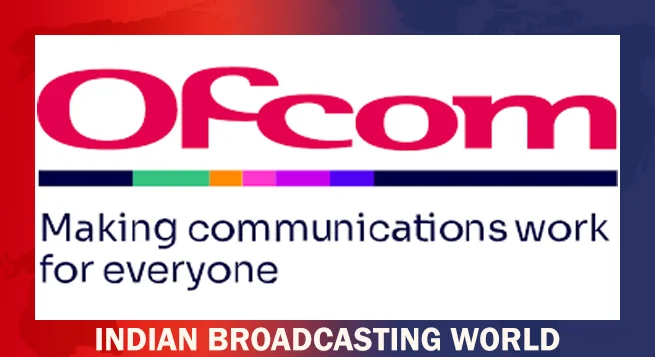As there’s a radical shift in people’s viewing habits, TV is increasingly being viewed online, driven by the mass take-up of broadband, a range of different devices and new platforms, British regulator Ofcom has said, adding that such trends also warrant a relook at digital terrestrial transmission or DTT.
In a report to the British government on Future of TV Distribution, Ofcom said people were spending less time watching TV broadcast over DTT and changing audience habits and rising costs could force a tipping point within the next decade where investment in DTT cannot be sustained, thus undermining the platform for those who rely on it.
It also suggested three broad approaches that could sustain the universal availability of TV services so the changing needs are taken into account to futureproof universal access.
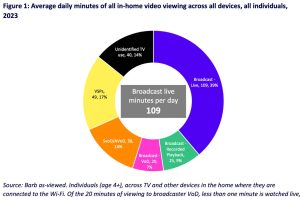
This report sets out the following:
- How different audience groups are changing their viewing patterns and platforms.
- How broadcasters are responding in the way they distribute content and the prospects for and sustainability of distribution platforms.
- How broadband availability and take-up would need to increase to support any greater reliance on these networks from TV audiences.
- How some audiences risk being left behind by inaccessible devices and interfaces.
- The interdependence of TV infrastructure with radio and emergency broadcast systems, as well as other sectors who have a stake in the infrastructure or radio spectrum used by DTT.
- Areas where further work or coordination may be desirable.
Pointing out that the industry anticipates a tipping point for DTT, Ofcom stated: “Broadcasters are paying to distribute their content both online and via traditional infrastructures like DTT with costs rising. The less time people spend on DTT, the less cost effective per viewer it is.
“For the first time, many broadcasters have told us that they foresee a tipping point at which it is no longer economically viable to support DTT in its current form.”
In recent years there has been a radical shift in people’s viewing habits. TV is increasingly being viewed online, driven by the mass take-up of broadband, a range of different devices, new platforms and ways to consume content. The average person spent 25 percent fewer minutes per day watching broadcast TV in 2023 than in 2018, the report said.
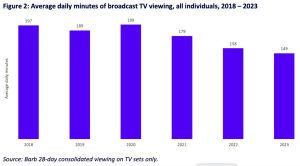
The trend is expected to continue, Ofcom said in a statement late last week, with watching on scheduled TV channels through DTT and satellite forecast to drop from 67 percent of total long-form TV viewing in 2022, to 35 percent by 2034 and 27 percent by 2040.
Much of that remaining viewing will be done by households that rely solely on DTT, which are more likely to include people who are older, less affluent or have a disability, it said.
To date, the significant migration of audiences online has been organic. Were this transition to continue ‘unmanaged’, there is a real risk that the DTT platform could be left unsupported. If those organisations that sustain the DTT ecosystem see a weaker case for new investment, they are likely to seek to cut costs. This could mean, for example, removing HD from Freeview, or reducing the number of channels the platform can broadcast – but without support for those viewers who rely on DTT to access those services over the internet, Ofcom said.
A clear vision and careful planning for the long term are needed, Ofcom said, adding that the three broad approaches it has suggested have their own challenges and involve commercial or public policy trade-offs.
The three suggestions are as follows:
- Investment in a more efficient DTT service: A more efficient, but full DTT service could be an option if audience scale and investment could be sustained over the 2030s. This option may well include supporting audiences with new equipment for more efficient broadcast signals.
- Reducing DTT to a core service: The DTT platform could retain a minimum number of core channels – for example the main public service and news channels. This would mean viewers mainly using the internet to access TV services, while also maintaining infrastructure that could deliver radio or TV, including if there are internet outages. It could be done as a temporary transition to a fuller switch off or remain indefinitely as a provider of last resort.
- Move towards DTT switch-off in the longer term: A planned campaign to ensure people are confident and connected with internet services, so DTT could be switched off. It would take careful planning to ensure universality of public service media, with support for people so that no-one is left behind. This could have wider benefits for digital inclusion in other areas of society.
“Considering the needs of all audiences must be at the heart of any chosen approach, and our report today signals no preference for any particular option. In all cases, the broadcast and broadband industries would need to work with government to set a common vision for how to deliver universal TV services in future, followed by detailed planning.
“An inclusive transition would take 8-10 years, so it is welcome that Government is considering these issues now so industry can be ready for any changes by the early 2030s,” Ofcom stated.
Ed Leighton, Ofcom’s Director of Strategy and Policy, commented: “DTT faces big long-term challenges and audiences who rely on it deserve a solution that is sustainable and fit for the future. It requires a new vision and planning across industry and government.”
Ofcom’s set of suggestions to the British government was in response to a request from the Department for Culture, Media and Sport (DCMS) in 2022 for the regulator to carry out an early review of market changes that may affect the way content reaches audiences on DTT.
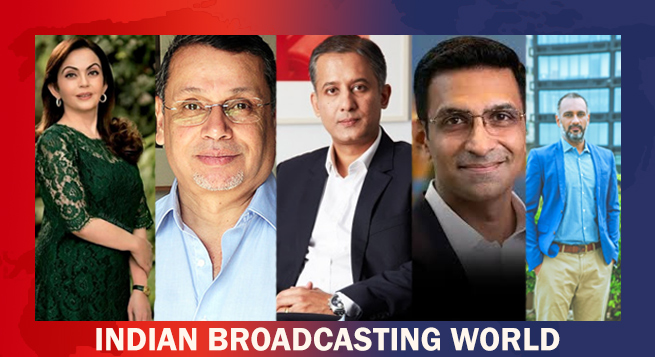 Kevin Vaz, Kiran Mani, Sanjog Gupta to head 3 verticals of JioStar
Kevin Vaz, Kiran Mani, Sanjog Gupta to head 3 verticals of JioStar 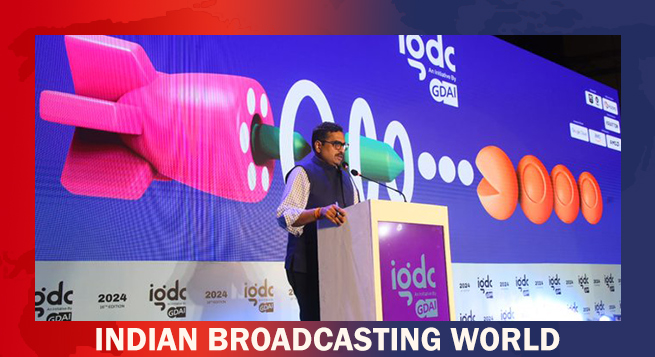 Govt & industry to prime gaming space for global dominance: MIB Secy Jaju
Govt & industry to prime gaming space for global dominance: MIB Secy Jaju 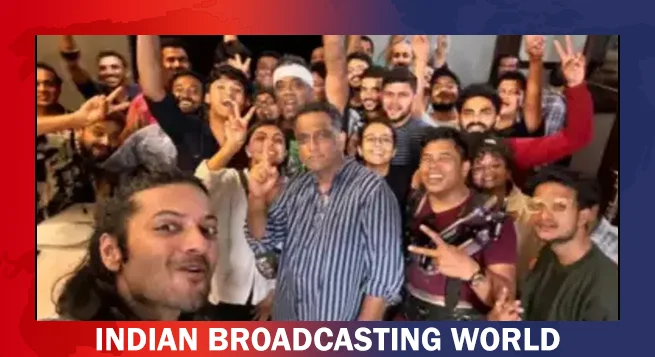 Ali Fazal wraps up filming for ‘Metro In Dino’
Ali Fazal wraps up filming for ‘Metro In Dino’ 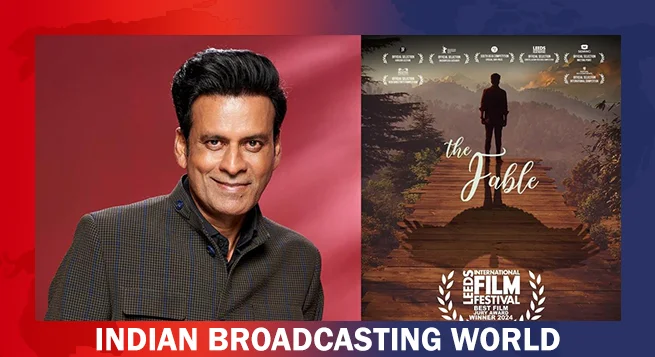 ‘The Fable’ wins best film at the 38th Leeds International Film Festival
‘The Fable’ wins best film at the 38th Leeds International Film Festival 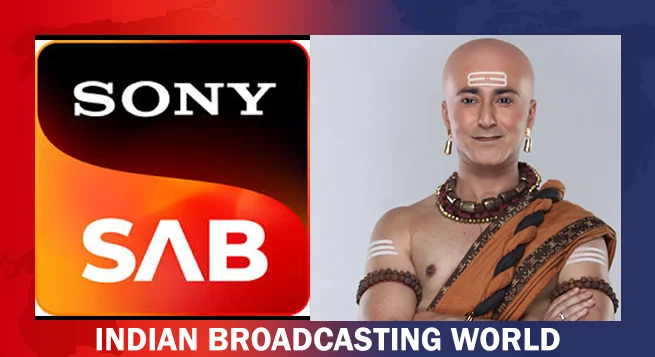 Sony SAB brings back ‘Tenali Rama’ at 8 pm slot
Sony SAB brings back ‘Tenali Rama’ at 8 pm slot 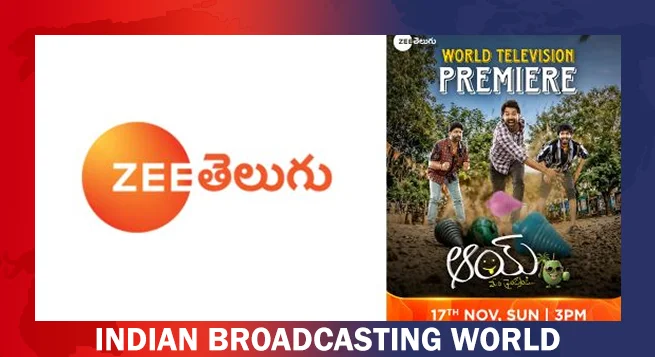 Zee Telugu to premiere ‘Aay’ on November 17
Zee Telugu to premiere ‘Aay’ on November 17  Release date of Pratik Gandhi, Divyenndu-starrer ‘Agni’ announced
Release date of Pratik Gandhi, Divyenndu-starrer ‘Agni’ announced 


